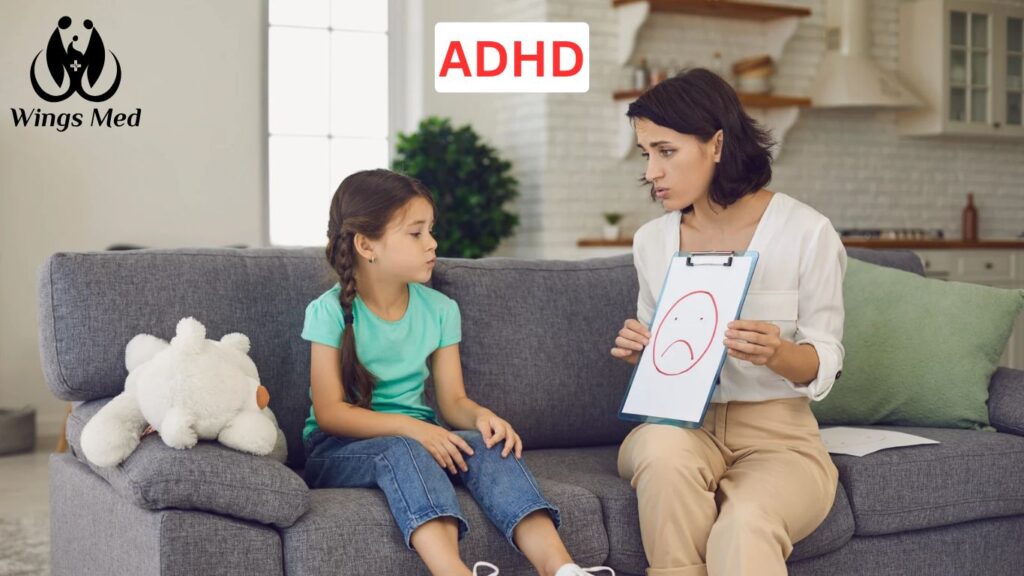HealthCare
Understanding of ADHD..? Symptoms, Causes, Diagnosis and Treatment of it.

Attention-Deficit/Hyperactivity Disorder (ADHD) is a neurodevelopmental disorder characterized by symptoms of inattention, hyperactivity, and impulsivity.
It typically presents in childhood and can continue into adulthood, affecting various aspects of life, including academic performance, work, and social interactions.
Symptoms
Inattention
- Difficulty sustaining attention in tasks or play activities.
- Frequent careless mistakes in schoolwork or other activities.
- Often seems not to listen when spoken to directly.
- Difficulty organizing tasks and activities.
- Avoidance of tasks requiring sustained mental effort.
- Easily distracted by extraneous stimuli.
- Frequently forgetful in daily activities.
Hyperactivity and Impulsivity
- Fidgeting or tapping hands or feet.
- Inability to stay seated in situations where it is expected.
- Running or climbing in inappropriate situations.
- Inability to play or engage in activities quietly.
- Excessive talking.
- Difficulty waiting for one’s turn.
- Interrupting or intruding on others’ conversations or games.
Diagnosis
Diagnosis is typically made by a healthcare professional based on criteria from the Diagnostic and Statistical Manual of Mental Disorders (DSM-5) and includes:
- A comprehensive evaluation involving clinical interviews, behavior rating scales, and observation.
- Symptoms must be present for at least six months.
- Symptoms must be evident before age 12.
- Symptoms must be present in two or more settings (e.g., at home and school).
- Symptoms must significantly impair social, academic, or occupational functioning.
Causes
The exact cause of ADHD is not known, but it is believed to involve a combination of genetic, environmental, and neurological factors:
- Genetics: ADHD tends to run in families, suggesting a genetic component.
- Brain Structure and Function: Differences in brain anatomy and function, particularly in areas involved in attention and impulse control.
- Environmental Factors: Exposure to environmental toxins (e.g., lead) during pregnancy or at a young age, low birth weight, and prenatal exposure to alcohol or tobacco smoke.
Treatment
Treatment for ADHD often involves a combination of medication, behavioral therapy, and educational support:
Medication
- Stimulants: Such as methylphenidate (Ritalin, Concerta) and amphetamines (Adderall, Vyvanse), which are effective for many individuals.
- Non-Stimulants: Such as atomoxetine (Strattera) and guanfacine (Intuniv), used when stimulants are not effective or cause side effects.
Behavioral Therapy
- Behavioral Interventions: Techniques to increase desirable behaviors and decrease undesirable ones through reinforcement and structure.
- Cognitive Behavioral Therapy (CBT): Helps individuals develop coping strategies and improve organizational skills.
- Parent Training: Helps parents learn strategies to manage their child’s behavior.
Educational Support
- Individualized Education Plan (IEP): Customized educational plans to address specific learning needs.
- Classroom Accommodations: Such as extra time on tests, seating arrangements, and modified assignments.
Lifestyle and Home Remedies
- Structured Routine: Consistent schedules and routines can help manage symptoms.
- Healthy Diet: A balanced diet with proper nutrition can support overall health.
- Regular Exercise: Physical activity can improve concentration and reduce hyperactivity.
- Sleep Hygiene: Ensuring adequate and consistent sleep is crucial for managing ADHD symptoms.
Support and Resources
- Support Groups: For individuals with ADHD and their families.
- Educational Resources: Books, online resources, and workshops to learn more about ADHD and effective management strategies.
- Professional Support: Ongoing collaboration with healthcare providers, educators, and therapists.
By combining medical, behavioral, and educational approaches, individuals with ADHD can manage their symptoms effectively and improve their quality of life.
Always Consult with a healthcare professional for personalized advice and guidance. 🩺
